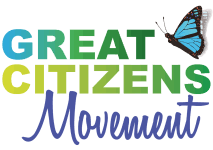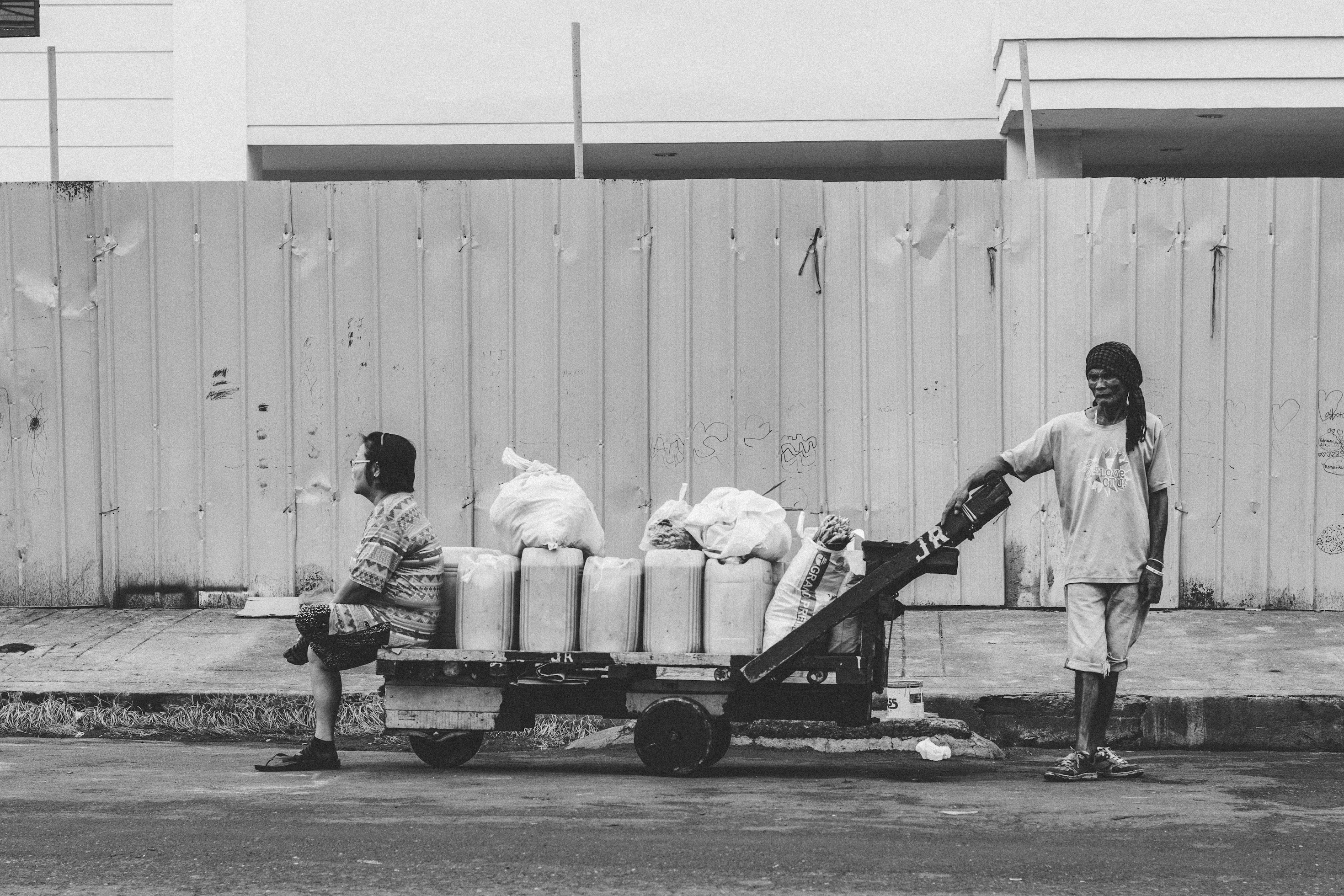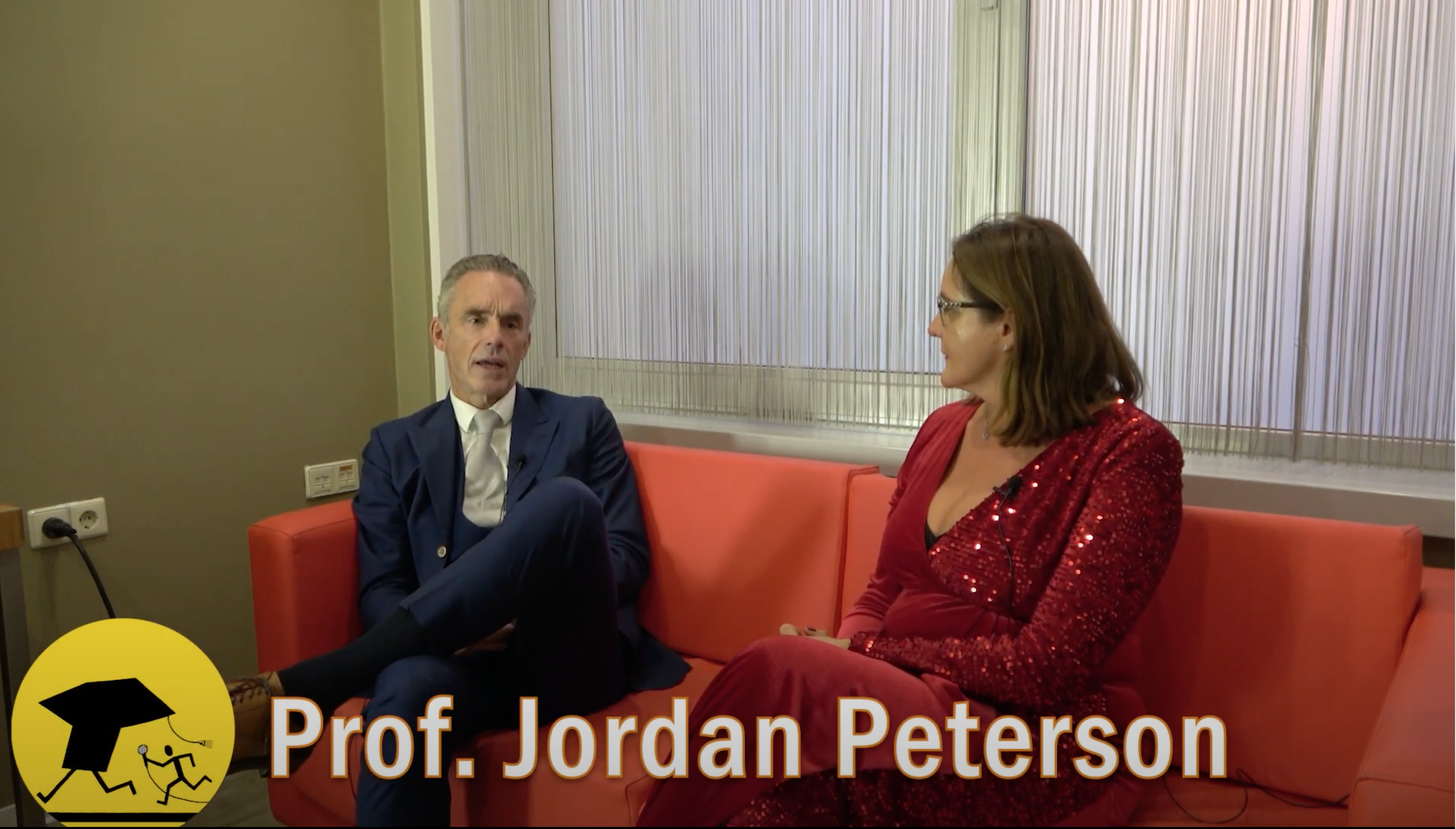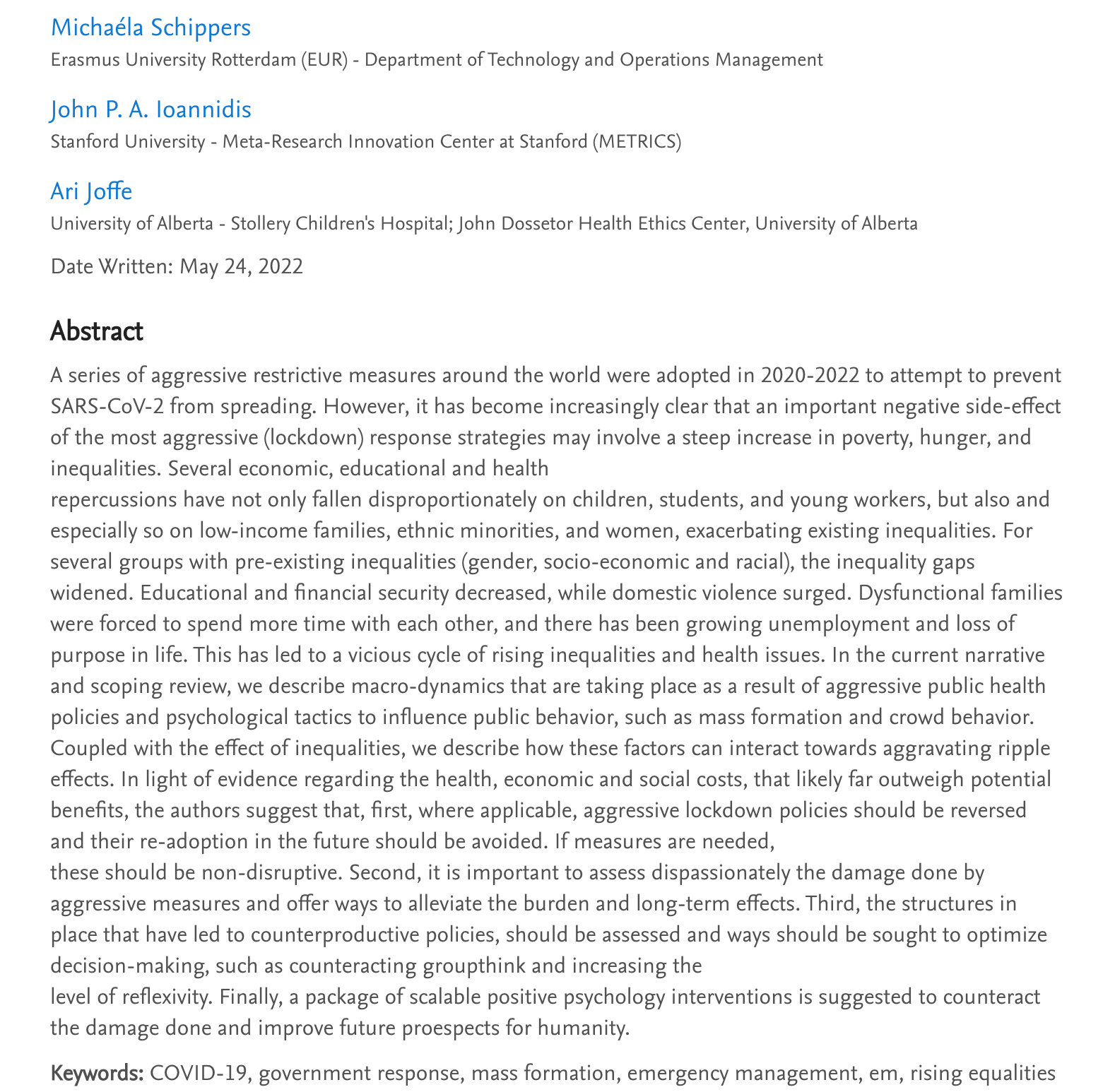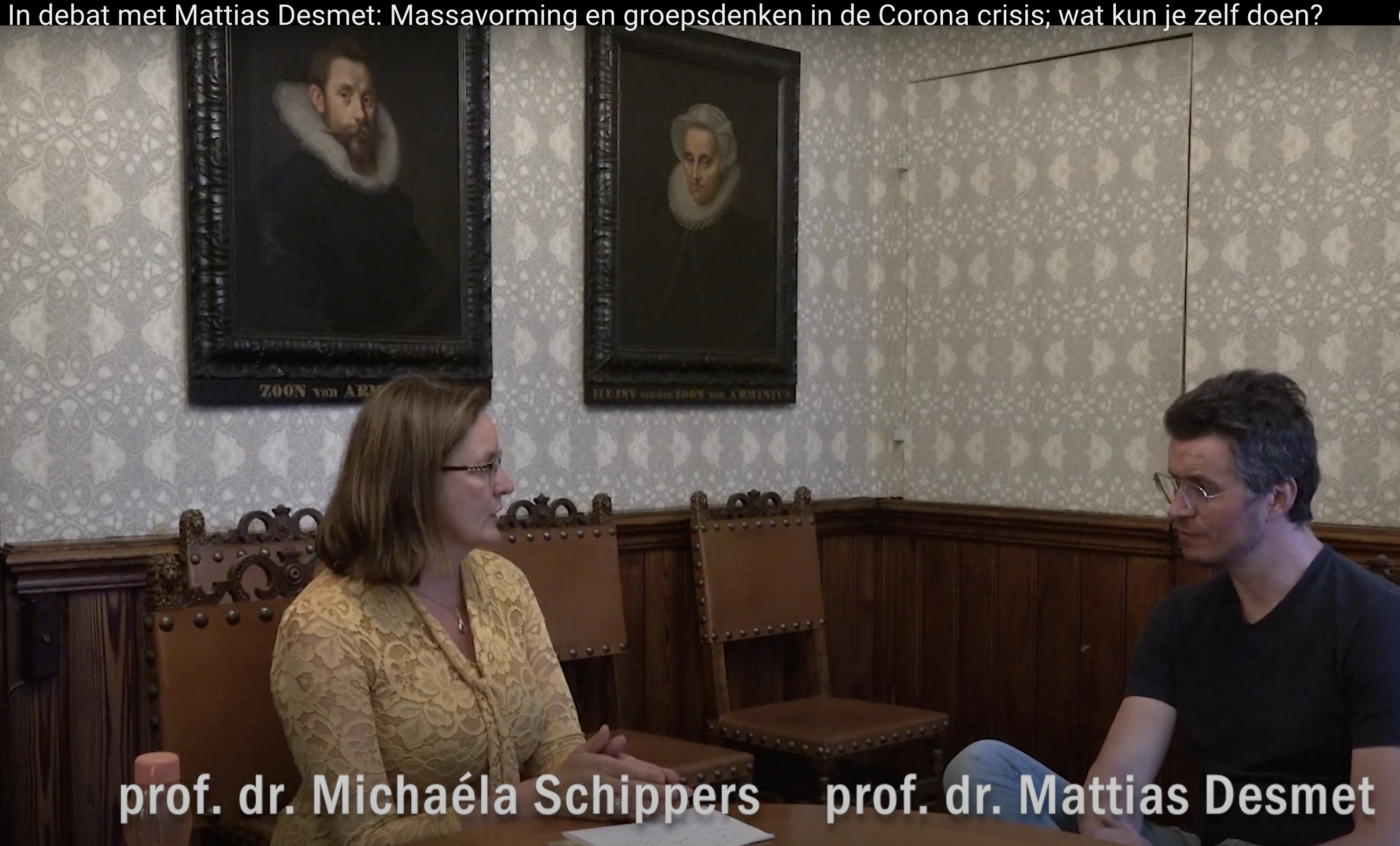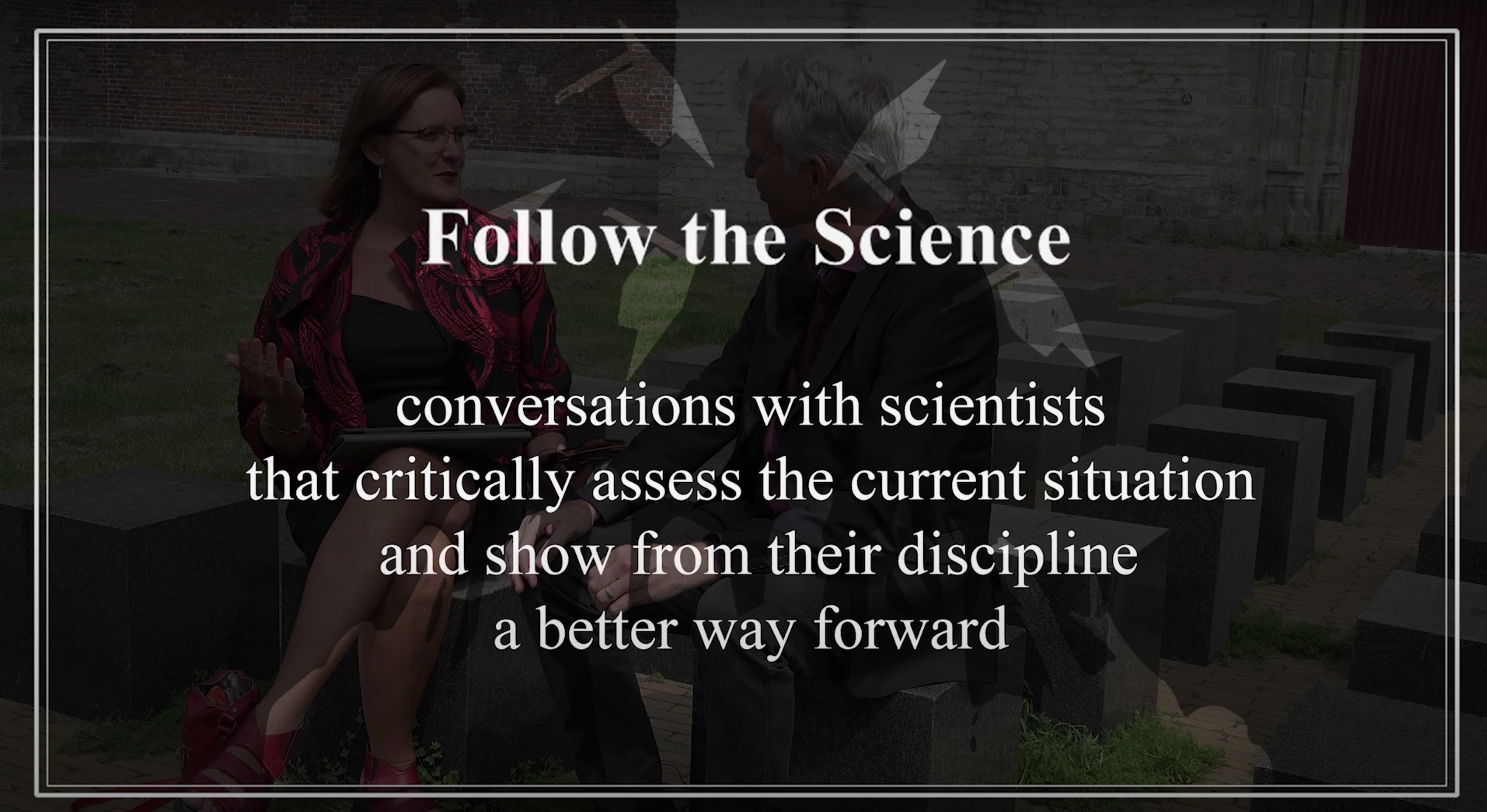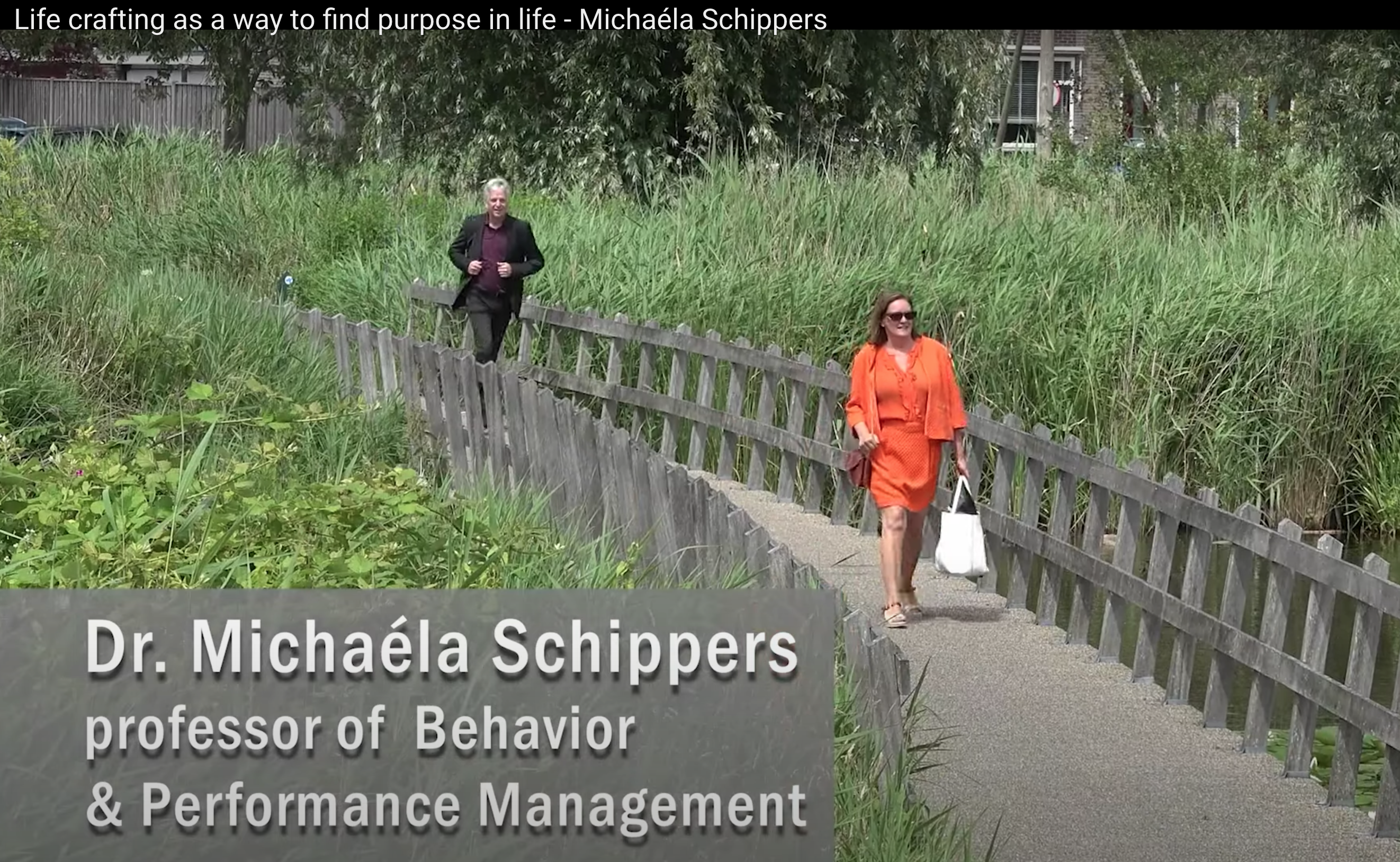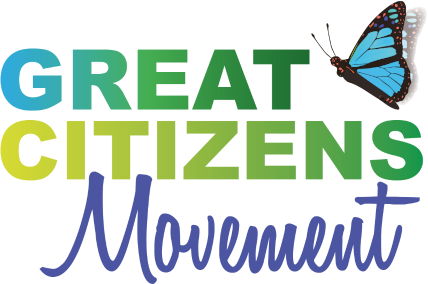Aggressive Measures, Rising Inequalities and Mass Formation During the COVID-19 Crisis: An Overview and Proposed Way Forward
New paper of Michaéla Schippers with John Ioannidis and Ari Joffe.
Abstract:
A series of aggressive restrictive measures around the world were adopted in 2020-2022 to attempt to prevent SARS-CoV-2 from spreading. However, it has become increasingly clear that an important negative side-effect of the most aggressive (lockdown) response strategies may involve a steep increase in poverty, hunger, and inequalities. Several economic, educational and health repercussions have not only fallen disproportionately on children,
students, and young workers, but also and especially so on low-income families, ethnic minorities, and women, exacerbating existing inequalities. For several groups with pre-existing inequalities (gender, socio-economic and racial), the inequality gaps widened. Educational and financial security decreased, while domestic violence surged. Dysfunctional families were forced to spend more time with each other, and there has been growing unemployment and loss
of purpose in life. This has led to a vicious cycle of rising inequalities and health issues.
In the current narrative review, we describe macro-dynamics that are taking place as a result of aggressive public health policies and psychological tactics to influence public behavior, such
as mass formation and crowd behavior. Coupled with the effect of inequalities, we describe how these factors can interact towards aggravating ripple effects. In light of evidence regarding the health, economic and social costs, that likely far outweigh potential benefits, the authors suggest that, first, where applicable, aggressive lockdown policies should be reversed and their re-adoption in the future should be avoided. If measures are needed, these should be non-disruptive. Second, it is important to assess dispassionately the damage done by aggressive measures and offer ways to alleviate the burden and long-term effects. Third, the structures in place that have led to counterproductive policies, should be assessed and ways should be sought to optimize decision-making, such as counteracting groupthink and increasing the level of
reflexivity. Finally, a package of scalable positive psychology interventions is suggested to counteract the damage done and improve future prospects for humanity.
See also:
Schippers, M.C., & Rus, D. C. (2021). Optimizing decision-making processes in times of covid-19: Using reflexivity to counteract information processing Failures. Frontiers in Psychology. 12, doi: 10.3389/fpsyg.2021.650525
https://lnkd.in/emM9Cn6
Schippers, M. C. (2020). For the greater good? The devastating ripple effects of the Covid-19 crisis. Frontiers in Psychology, 11, 2626. doi: 10.3389/fpsyg.2020.577740
https://lnkd.in/djWtvm3
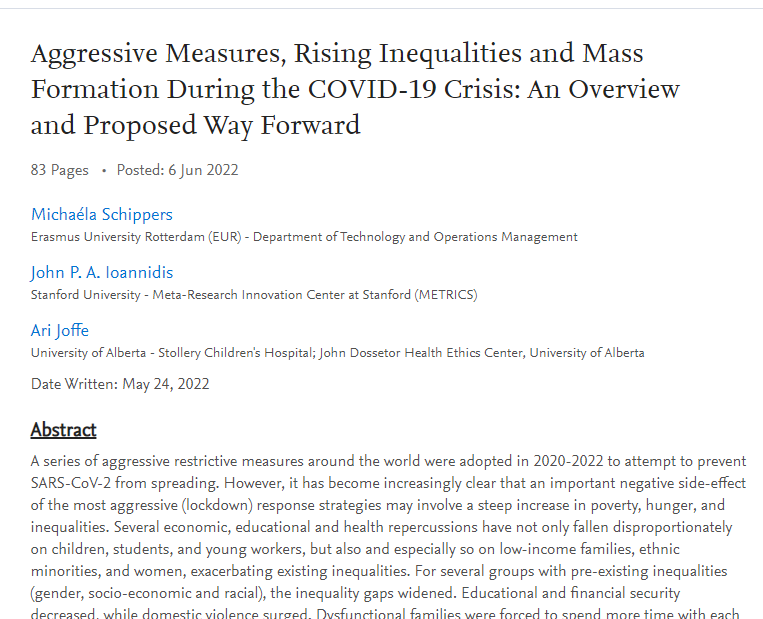
Infosperber: This is how much the super-rich benefited from the corona pandemic
Photo by Chitto Cancio on Unsplash Online magazine Infosperber: This is how much the super-rich benefited from the corona pandemic. What follows is an English translation of Martina Frei's
Jordan B. Peterson: death spiral
Follow the Science: Jordan B. Peterson about the death spiral: we're in an epidemic of narcissism and bad decision making.
Paper “Aggressive Measures..”
Paper "Aggressive Measures (..) During the COVID-19 Crisis" was published on August 25, 2022. The paper Aggressive Measures, Rising Inequalities and Mass Formation During the COVID-19 Crisis: An Overview and Proposed
Mattias Desmet: Mass formation and groupthink in the Corona crisis; what can you do yourself?
Follow the Science: Matthias Desmet on mass formation and groupthink in the Corona crisis; what can you do yourself? During the Night of the New World in Rotterdam July 9, 2022, a
About Follow the Science
Follow the Science - Talks with Scientists about a better way forward Follow the Science: Talks with scientists that critically assess the current situation and propose a (better) way forward. Guests
Michaela Schippers on Life Crafting
Follow the Science - Michaela Schippers on Life Crafting as a way to find purpose in life. Rico Brouwer talks to professor of behavior and performance management Michaéla Schippers about the
